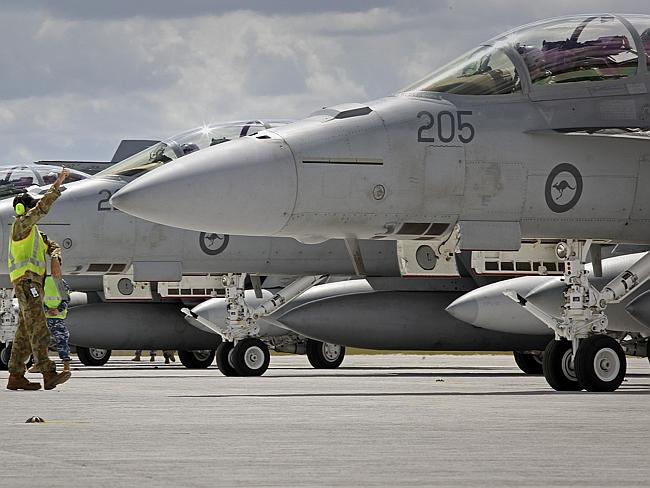
News that the Pentagon’s Inspector General is investigating claims that intelligence documents assessing the success of American air strikes against Islamic State (IS) targets in Iraq were ‘handled’ to give a more ‘optimistic account’, should send shivers of trepidation through the corridors of power of any allied government considering active involvement in air operations against IS targets in Syria. Not so in Canberra. National security fever has yet again gripped the Australian capital as the media awaits confirmation of Australia’s new commitment to help Washington eliminate what Australian Prime Minister Tony Abbott calls a ‘death cult’.
Prime Minister Abbott has again shown the pattern of predictable behaviour of a leader whose political fortunes are flagging. Unable to come to grips with complex and controversial social issues at home, Abbott has consistently used national security as a way of rallying people around him in his time of need. Whether it’s the threat of IS-inspired terrorists lurking among Australia’s Muslim communities, or the threat posed by the ideology of IS in the Middle East, Australia is always first among America’s allies who wants to be seen to be doing something, even when the something that actually nothing at all. Today (Aug. 26, 2015), allegations were made in the Australian media that Prime Minister Abbott, eager to be seen to lead from the front in the war against IS, ‘volunteered’ Australia’s Air Task Group in Iraq for operations supporting the American air campaign in Syria. The Prime Minister was quick to deny this, suggesting that President Obama was the one who had approached him for Australian support. However, senior government officials told Fairfax Media that it was Abbott’s office which drove Australia’s offer of support, not the White House. Whether this was the situation or not, what is sure is that by early September, Australia’s Air Task Group Iraq may be striking targets within Syria, and from almost any perspective, this is neither a wise nor an effective move.
Australia’s Air Task Group in Iraq was dedicated to bombing IS targets inside Iraq, not Syria. It is a small contingent consisting of some eight aircraft, six classic F/A-18 Hornet fighters, one E-7A airborne warning and control aircraft and one KC-30A multirole tanker/transport plane. By international military standards, this is not a large force and while it has provided some tactical utility in eroding IS paramilitaries in Iraq as far as we can assess, splitting this force between Iraqi and Syrian missions will add no weight to the existing American air campaign in Syria and will certainly impact on the RAAF’s existing mission parameters in Iraq, unless the Abbott government agrees to increase the size of the RAAF’s overall commitment to Middle East missions. Considering the parlous state of the Australian economy, this would be financially irresponsible at a time when fiscal restraint is called for. Deploying even a small batch of high-tech forces far from Australian shores and then sustaining them indefinitely, is expensive. So the question that needs to be raised is, what is the Australian taxpayer’s return on investment? The destruction of the death cult of IS? No air campaign has ever won a war in its own right. Aerospace technology is a potent force when used in combination with land and sea power, but never has it shown such decisive effect that it alone can defeat a ground based enemy. It is unlikely that the American mission over Syria will change this historic fact and Australia’s role in this campaign, minor as it is likely to be, becomes just another expensive symbolic gesture designed to make Australia look relevant to American interests.
http://www.sageinternational.com.au/personal-observations/air-operations-but-no-strategy-against-the-islamic-state/

No comments:
Post a Comment